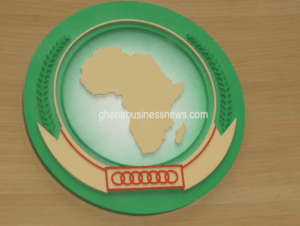What became of the African Union declaration of 2018 as the year against corruption?
 If there is one continent where poverty shouldn’t be experienced or even tolerated at the current levels, it is Africa. The continent has enough wealth to go around, but several factors, among them poor and weak leadership, broken systems and corruption have conspired to keep many Africans poor.
If there is one continent where poverty shouldn’t be experienced or even tolerated at the current levels, it is Africa. The continent has enough wealth to go around, but several factors, among them poor and weak leadership, broken systems and corruption have conspired to keep many Africans poor.
Extreme poverty in the world has declined considerably, as new World Bank estimates suggest that the number of extremely poor people—those who live on $1.90 a day or less—has fallen from 1.9 billion in 1990 to about 736 million in 2015. But the number of people living in extreme poverty is on the rise in sub-Saharan Africa, and they make up more than half of the extreme poor in 2015. Projections also point to the fact that by 2030, nearly nine in 10 extremely poor people will live in sub-Saharan Africa.
Broken social and political systems are known to predispose societies to corruption, and while there is corruption everywhere, an excuse most Africans love to give when the issues of endemic corruption is cited in the continent, the debilitating effects of corruption on the majority of the poor is deep and dis-empowering.
It was therefore refreshing when at the 30th Assembly of Heads of State and Government held from January 22 – 29, 2018 in Addis Ababa, Ethiopia, the AU launched the anti-corruption fight.
The launch of the African Anti-Corruption Year, the AU noted follows the declaration made at the 29th Assembly of the Heads of State and Government in January 2017. The Summit theme was: “Winning the Fight against Corruption: A Sustainable Path to Africa’s Transformation”.
It is currently reported that African countries altogether lose some $148 billion every year to corruption. This figure is estimated to represent 25 per cent of the continent’s average GDP.
Considering what the money could go into, in terms of improved healthcare services and education, the story of a region like West Africa would be different.
Despite an overall favorable economic outlook in West Africa, with positive growth prospects hinging on oil, progress is relatively weak at the social level.
For example, looking at some two countries in West Africa would show a grim picture. It is on record that more than 1,000 women die giving birth based on 100,000 live births. Comparing this figure to the global level of 200, shows how far behind the region and to a large extent the continent is in this regard.
It is also reported that many children are dropping out of school much earlier than can be anticipated and leave without the minimum skills required for a meaningful life. It is noted that in two countries in the region, less than 15 per cent of children reach the minimum level of reading and mathematics skills at the end of primary education.
The AU at the end of 2018, and almost at the end of 2019 is yet to give an account of its achievement in the fight against corruption. If any, it is not clear yet if the AU did concrete acts to deal with the menace.
On the other hand, it appears in most African countries like Zambia, Benin, Ghana and Nigeria, to list a few, anti-corruption activists and journalists exposing and resisting corruption have come under attack.
In Nigeria, activists and journalists like Omoyele Sowore, Agba Jalingo, Jones Abiri, Fisayo Soyombo are being persecuted by the State for exposing corruption and for speaking out against state intolerance to criticism.
While Sowore and Jalingo are being held in detention, Abiri has been released on bail, while security operatives are hounding Soyombo for his outstanding investigations that exposed corruption and abuse of power in the police, judiciary and prison systems in Nigeria.
In Zambia, Derrick Sinjela was jailed 18 months for writing an article accusing the Supreme Court of corruption in the handling of a case.
In Benin, journalist Ignace Sosu was given a one-month suspended sentence for publishing articles about a business that was avoiding the payment of taxes.
Then in Ghana in January this year, Ahmed Hussein-Suale was murdered in cold blood. He worked on the investigation that exposed corruption in football administration and management in Ghana.
Edward Adeti, another journalist was hounded, threatened and chased out of his beat in Bolgatanga for exposing corruption.
The country’s Auditor-General, Daniel Domelevo has come under all forms of attack for doing his job right and resisting abuse and misuse of the public purse. For applying the law on surcharges, he is being targeted.
In all these, the AU hasn’t been heard, at least not publicly speaking out against the persecution of anti-corruption activists.
While it is true there is corruption everywhere, that doesn’t make corruption right or acceptable anywhere, because corruption robs many citizens of their dignity as funds meant for badly needed social services are diverted into private pockets.
The AU, cannot abandon the fight against corruption, it must be leading it, if its Agenda 2063 and the SDGs must be achieved.
By Emmanuel K. Dogbevi
Email: [email protected]
Copyright ©2019 by Creative Imaginations Publicity
All rights reserved. This article or any portion thereof may not be reproduced or used in any manner whatsoever without the express written permission of the publisher except for the use of brief quotations in reviews.
